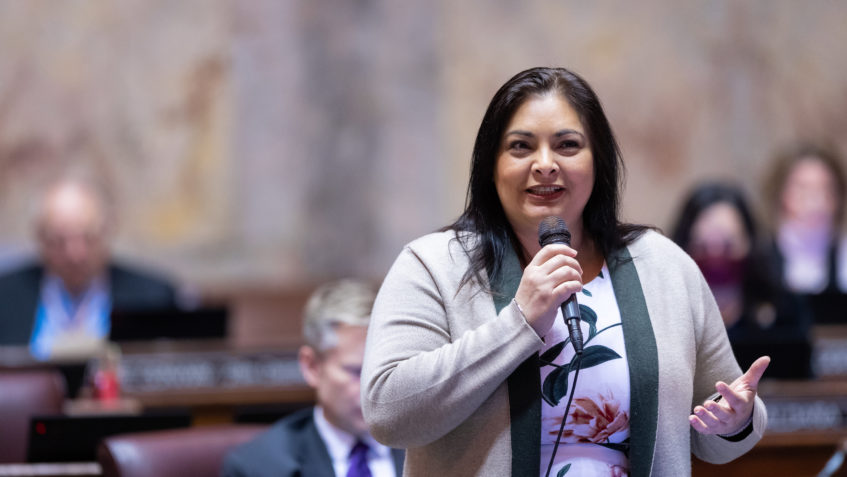OLYMPIA — Washington state would license innovative crisis relief centers for people with behavioral health needs, providing an alternative to emergency rooms and jails, under legislation passed unanimously today by the Senate.
SB 5120, sponsored by Sen. Manka Dhingra (D-Redmond), would direct the Department of Health to license or certify crisis relief centers, a new type of crisis diversion facility that can provide short-term help to patients regardless of behavioral health acuity.
“Our state’s new 988 Suicide and Crisis Lifeline is a national model,” said Dhingra, chair of the Law & Justice Committee. “But with that model, we have to step up and deliver the services it promises to people in a mental health or substance use crisis.”
Currently, behavioral health facilities in Washington require a cumbersome medical clearance process before accepting someone in crisis, which results in first responders’ taking them instead to places that do not use exclusionary criteria: emergency rooms and jails.
SB 5120 would establish a “no-wrong-door” framework for crisis relief centers, meaning that people in mental health and substance use crises would not be turned away. In these centers, people can get the short-term care they need and make connections to longer-term services that can help them reacclimate to a stable lifestyle.
The centers will operate within clear guardrails that require them to accept all walk-ins and drop-offs from ambulance, fire, and police regardless of behavioral health acuity.
The Senate is also considering complementary legislation this year to fulfill the promise of the new 988 Suicide and Crisis Lifeline:
- SB 5555, sponsored by Sen. Emily Randall (D-Bremerton), also passed the Senate today. It would establish a new state-certified profession of peer specialists, who would be able to provide services to people in recovery from mental health or substance use disorder.
- SB 5189, sponsored by Sen. Yasmin Trudeau (D-Tacoma), passed the Senate today as well. It would establish a new state-certified profession: behavioral health support specialists. People in this bachelor’s-level role, under the supervision of a doctor, could provide immediate care for patients with mild-to-moderate behavioral health disorders, which would help prevent crises.
- SB 5130, sponsored by Sen. Noel Frame (D-Seattle), would set out conditions under which a court can direct people with a severe behavioral health disorder to assisted outpatient treatment (AOT), which puts a judge and a care team in charge of coordinating consistent care using the least restrictive form of treatment necessary to ensure patients’ recovery and stability. The bill is eligible for a vote of the full Senate.
- SB 5228, sponsored by Dhingra, would provide occupational therapy services for people with behavioral health disorders, including new clients in low-barrier housing. Occupational therapists teach basic activities of daily living, household skills, and methods of managing acute symptoms, which can make the difference between failure and success for clients. This bill is in the Senate Rules Committee.
SB 5120 now moves to the House for consideration.


